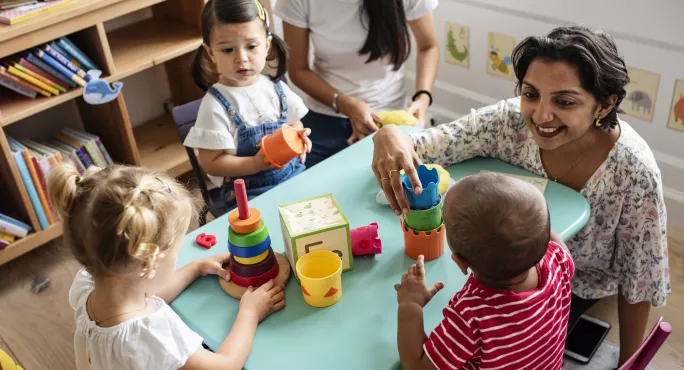The Department for Education is inviting bids to run a network of “Early Years Stronger Practice Hubs” to support Covid recovery and to share effective practice in the sector.
New documents show the government plans to establish a network of 18 of these hubs nationwide, but the potential value of the contract to deliver them has been reduced from the amount previously announced.
Last month, the DfE published a prior information notice - informing the market of an upcoming procurement - revealing they were searching for a provider to deliver these new hubs in a contract worth up to £1 million.
But the release of the tender this week shows that the potential maximum value of the contract is now £800,000.
The contract will require the contractor to support the delivery of 18 hubs.
It mentions all nine regions of England: the North East, North West, Yorkshire and the Humber, East Midlands, West Midlands, East of England, London, South East and the South West, but there is no detail of how many will be allocated to each area.
The programme is set to run for just over two years, from July this year (2022) to October 2024, and is said to be part of the DfE’s £180 million investment in recovery support in the early years.
The DfE said the new hubs will build on the new early years foundation stage framework, introduced last September, which aimed to support providers to improve expertise and knowledge of “what works to support child outcomes”.
The tender document says: “The hubs will be responsible for supporting other early years settings with adopting evidence-based practice improvements to address key Covid-19 recovery issues and build local networks for sharing effective practice.
“Building on the EYFS reforms, the hubs will be existing, well-established early years settings with expertise and knowledge of what works to support child outcomes, and the supporting evidence base.
“Hubs will also have demonstrable experience of delivering effective practice for the benefit of children. The programme is part of the DfE’s £180 million investment in recovery support in the early years sector.”
The programme set-up period will run from July to November of this year (2022), with hubs expected to launch at this point.
There is also the possibility that the contract could be extended for a year.
Yesterday, the Education Policy Institute (EPI) published data revealing the number of nursery children eligible for free school meals (FSM) is rising.
The data showed around 23,600 nursery children (14 per cent) in the maintained nursery sector were eligible for FSM in 2020-21.
But the EPI also warned that it is unknown how many children actually take the meals.
And Dr Kerris Cooper, senior researcher in early years at EPI, said children missing out on these meals could have “serious consequences”.




